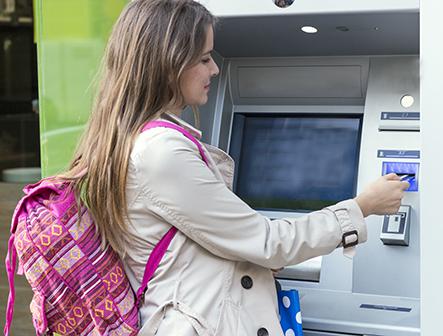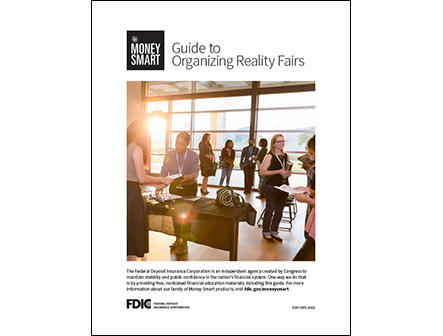
The FDIC is sharing resources to encourage banks and schools to work together to improve the financial skills and experiences of youth. Financial education and school-based savings programs introduce young people to financial services at an early age, while helping youth learn how to manage their money more effectively. Youth savings programs not only encourage the development of savings habits at a formative age, but also have the potential to promote economic inclusion for entire families.
A research report from the U.S. Treasury Department concluded that having a bank account boosts the effect of financial education instruction on students. The report also said that in schools where there was a branch of a federally-insured financial institution, students had more positive attitudes towards banks and were more likely to have a bank account.
Through this website, learn about proven strategies to enhance youth financial education activities with access to a savings account.
What’s New! Look at new templates on the Implementation Resources page. They were developed to support youth banking efforts. The first two are for your consideration when seeking internal buy-in to start a program. The third resource, Key Elements of Your Youth Savings Program, is a planning tool for developing a program. We also have sample letters to send to parents or guardians introducing them to your program.
Please send your requests for sample letters and other inquiries to youthsavings@fdic.gov.
Reality Fairs

Guide to Organizing Reality Fairs
This guide is a comprehensive resource for organizing a three-hour Reality Fair for youth. It includes checklists, timelines, and sample communications for planning a successful fair. It also includes resources that support the fair itself, such as participant profiles and booth worksheets.
For youth, a Reality Fair can be an eye-opening, exciting, and fun way to build financial knowledge and skills. Each year, banks lead Reality Fairs nationwide. They are often held in partnership with youth-serving organizations and schools.
At Reality Fairs, youth learn what it is like to engage a financial institution, decide how to use their money, obtain a loan, manage debt, and more.
